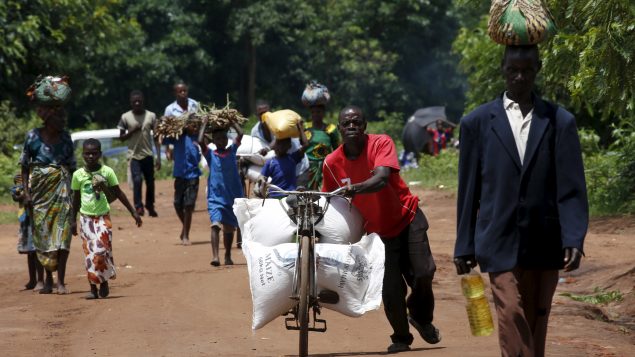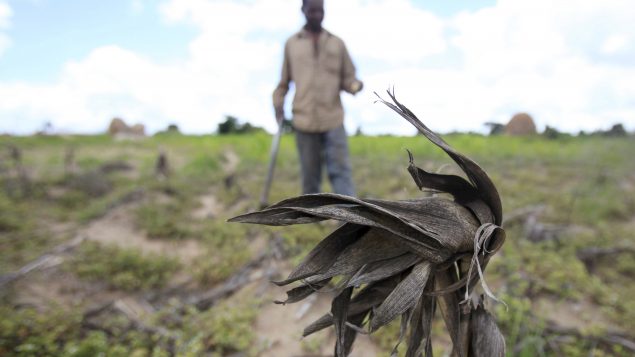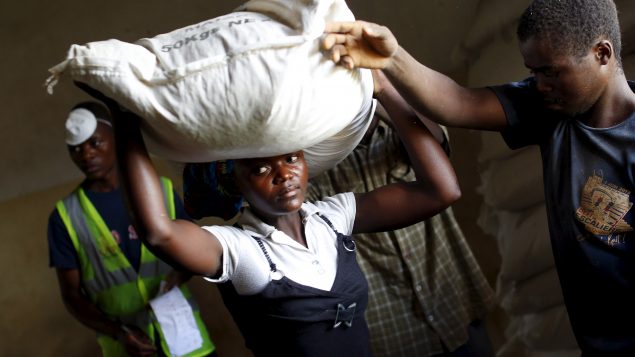A record 45 million people across southern Africa face severe food shortages in the next six months, with nearly 11 million currently enduring drought-induced “crisis” or “emergency” levels of food insecurity, three United Nations agencies warned on Thursday.
The 16-member Southern African Development Community is in the grips of a severe drought, as climate change wreaks havoc in impoverished countries struggling to cope with extreme natural disasters, such as Cyclone Idai which devastated Mozambique earlier this year.
Some of the worst affected countries include Angola, Zimbabwe, Mozambique, Zambia, Madagascar, Malawi, Namibia, Eswatini and Lesotho.
“We’ve had the worst drought in 35 years in central and western areas during the growing season,” said Margaret Malu, acting regional director for southern Africa at the World Food Programme (WFP).
“We must meet the pressing emergency food and nutrition needs of millions of people, but also invest in building the resilience of those threatened by ever more frequent and severe droughts, floods and storms.”

A Malawian man transports food aid distributed by the United Nations World Food Progamme (WFP) through maize fields in Mzumazi village near the capital Lilongwe, Feb. 3, 2016. (Mike Hutchings/REUTERS)
The Food and Agriculture Organization (FAO), the International Fund for Agricultural Development (IFAD) and the WFP are calling for urgent funding to avert a major hunger crisis and for the international community to step up investment in long-term measures to combat the impact of climate shocks and build the capacity of communities and countries to withstand them.
The WFP urgently needs $245 million US to assist 7.2 million people in Zimbabwe, Mozambique, Zambia, Madagascar, Malawi, Namibia, Eswatini and Lesotho through March 2020, said Julie Marshall, WFP Canada’s spokesperson.
While southern Africa has experienced normal rainfall in just one of the last five growing seasons, persistent drought, back-to-back cyclones and flooding have wreaked havoc on harvests in a region overly dependent on rain-fed, smallholder agriculture, the UN agencies said in a joint statement.
“Late rains, extended dry periods, two major cyclones and economic challenges have proved a recipe for disaster for food security and livelihoods across Southern Africa,” said Alain Onibon, FAO’s Sub-Regional Coordinator for Southern Africa. “As it could take many farming communities at least two to three growing seasons to return to normal production, immediate support is vital.”
The international community must scale up its agricultural emergency response, he added.

A Zimbabwean man walks through his maize field outside Harare, Jan. 20, 2016. (Philimon Bulawayo/REUTERS)
“We need to ensure farmers and agropastoralists take advantage of the forecasted good rains, assuming they happen, as this will be crucial in helping them rebuild their livelihoods,” Onibon said.
The growing hunger crisis is also affecting urban areas and is being aggravated by rising food prices, large-scale livestock losses and mounting joblessness, the statement.
Much of the food insecurity in the region is directly caused by climate change, according to UN experts.
Southern Africa’s temperatures are rising at twice the global average according to the International Panel on Climate Change, and the region includes six of the nine African countries set to be hardest hit by adverse weather in coming years: DR Congo, Malawi, Mozambique, Tanzania, Zambia and Zimbabwe, said the joint statement by the three agencies.
“With the region so prone to shocks and afflicted by high rates of chronic hunger, inequality and structural poverty, climate change is an existential emergency which must be tackled with the utmost urgency”, said Robson Mutandi, IFAD Director for the Southern Africa Hub. “Governments have the biggest role to play, but we must all step up because it affects each and every one of us.”
With files from Reuters







For reasons beyond our control, and for an undetermined period of time, our comment section is now closed. However, our social networks remain open to your contributions.